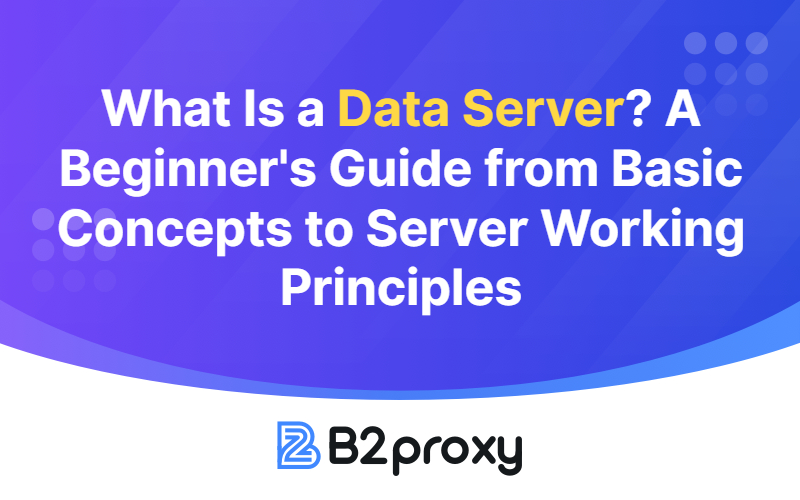The Role of Proxy IP for SEO: The Key Tool Behind Data-Driven Optimization
 July 16.2025
July 16.2025

<p style="line-height: 2em;"><span style="font-family: Calibri; font-size: 16px;">SEO has become a core strategy for websites to gain natural traffic, enhance brand exposure & achieve long-term growth. In the process of executing SEO work, enterprises and optimization teams gradually realize that efficient, compliant and controllable data collection capability is becoming a decisive factor for SEO success. Among them, proxy IP, as a basic network resource, is playing an increasingly important technical support role.</span></p><p style="line-height: 2em;"><span style="font-family: Calibri; font-size: 16px;">In this article, we will systematically explore the application value and mechanism of proxy IP in SEO practice, and analyze its actual contribution in data acquisition, geographical simulation, competition analysis and other aspects in combination with typical scenarios.</span></p><p style="line-height: 2em;"><span style="font-family: Calibri; font-size: 16px;">The Prerequisite Guarantee of Data Acquisition </span></p><p style="line-height: 2em;"><span style="font-family: Calibri; font-size: 16px;">High-quality SEO strategy cannot be separated from a large amount of data support. From keyword ranking tracking, SERP structure monitoring, to competitor backlink analysis, page content crawling, etc., SEO personnel need to frequently visit search engine results pages (e.g., Google, Bing, Baidu) as well as competing website pages. This type of high-frequency, repetitive access behavior is very easy to trigger the platform's anti-crawl mechanism, CAPTCHA verification, IP blocking, request failure and other issues.</span></p><p style="line-height: 2em;"><span style="font-family: Calibri; font-size: 16px;">Using a proxy IP can effectively bypass this restriction. By dynamically switching IP addresses and simulating normal access behaviors from different networks and regions, proxy IP can significantly improve the success rate of requests, ensure the stability of data collection tasks, and avoid collection interruptions due to IP blocking. In addition, the use of highly anonymous Residential or mobile proxies can also enhance the simulation effect and further reduce the risk of being recognized.</span></p><p style="line-height: 2em;"><span style="font-family: Calibri; font-size: 16px;">Multi-Geographic SEO Monitoring and Ranking Verification </span></p><p style="line-height: 2em;"><span style="font-family: Calibri; font-size: 16px;">In the context of globalized operations, more and more companies are expanding their SEO strategies to multiple countries and regions. However, search engine result pages often return localized content based on the user's IP address. In other words, users searching for the same keywords in Beijing and New York respectively may see completely different rankings and page content.</span></p><p style="line-height: 2em;"><span style="font-family: Calibri; font-size: 16px;">This poses a challenge for cross-border SEO. Enterprises that want to truly replicate search results in their target markets for content optimization, ad validation, and technical adjustments need the ability to “simulate a local user visit”. By using proxy IPs with geolocation capabilities (e.g., Residential proxies assigned by country and city), SEOs can access Google or local search engines from a specific region to get accurate SERP results, verify keyword coverage, and discover geographic content differences that can be used as a basis for localization optimization.</span></p><p style="line-height: 2em;"><span style="font-family: Calibri; font-size: 16px;">Competitor Analysis and Content Monitoring </span></p><p style="line-height: 2em;"><span style="font-family: Calibri; font-size: 16px;">Understanding competitors' optimization strategies, page structure and keyword layout is an important reference for developing SEO plans. Competitive websites often set access frequency control on specific IP segments, and even restrict crawler behavior. The use of proxy IP can not only break through the access restrictions, but also on the data crawl node diversion, to ensure stable access to the target site's content updates, structural adjustments, technical changes and other core information.</span></p><p style="line-height: 2em;"><span style="font-family: Calibri; font-size: 16px;">At the same time, the use of proxy IP can also diversify access paths and decentralize cycles, preventing the other platform from identifying access sources and behavioral patterns, and establishing a more covert and reliable public opinion and intelligence acquisition mechanism for the SEO team.</span></p><p style="line-height: 2em;"><span style="font-family: Calibri; font-size: 16px;">SERP Structure Monitoring and Zero Optimization Analysis </span></p><p style="line-height: 2em;"><span style="font-family: Calibri; font-size: 16px;">As search engines continue to introduce structured results, rich media summaries, knowledge panels, maps, and other “zero-click search” elements, traditional ranking dimensions are no longer comprehensive. SEOs need to grasp the complete SERP structure under the target keywords to assess the visibility and click-through rate potential of a page in the search results. The SEO needs to understand the complete SERP structure under the targeted keywords to assess the visibility and click-through potential of the page in the search results.</span></p><p style="line-height: 2em;"><span style="font-family: Calibri; font-size: 16px;">By using proxy IPs for search requests, the SEO system can steadily crawl the search result pages for various keywords and model and analyze the structured data position, brand exposure and competition intensity, to explore potential entry points for optimization, such as capturing FAQ blocks, video preview positions or People Also Ask areas.</span></p><p style="line-height: 2em;"><span style="font-family: Calibri; font-size: 16px;">Distributed Testing and Iterative Validation of Technology </span></p><p style="line-height: 2em;"><span style="font-family: Calibri; font-size: 16px;">After site restructuring, server response optimization, or content revamping, SEO teams often need to evaluate inclusion, crawl frequency, and responsiveness in different regions. By using proxy IPs, developers can test the site's access experience, response latency, CDN hit rate and other technical indicators from different network outlets to identify issues that affect crawling or loading, and ensure that technical adjustments don't trigger SEO traffic fluctuations.</span></p><p style="line-height: 2em;"><span style="font-family: Calibri; font-size: 16px;">At the same time, search engine crawling response to different IP segments may have differences, by setting up a multi-IP environment for technical verification, can also help the team more comprehensively grasp the search engine's access preferences and strategy changes.</span></p><p style="line-height: 2em;"><span style="font-family: Calibri; font-size: 16px;">SEO is no longer just keyword stacking and page beautification, it has evolved into a technical work that relies deeply on data. Proxy IP, however, is an important tool for securing data access, building geographic simulations, breaking through access restrictions, and realizing covert analysis. For organizations that want to achieve precise SEO deployment in the global market, the use of proxy IP is no longer “optional”, but “infrastructure” to promote the implementation of the strategy.</span></p><p style="line-height: 2em;"><span style="font-size: 16px;"><span style="font-family: Calibri; font-size: 16px;">Choosing a stable, highly anonymous and highly available proxy IP service provider is crucial. </span><a href="https://www.b2proxy.com/" target="_self"><span style="font-size: 16px; font-family: Calibri;">B</span><span style="font-family: Calibri; font-size: 16px;">2Proxy </span></a><span style="font-family: Calibri; font-size: 16px;">provides global coverage of Residential IP, supporting city-level targeting, API access, dynamic rotation and enterprise-level customization, helping SEO teams securely and efficiently obtain the data they need to comprehensively support strategy development and execution.</span></span></p><p><br/></p>
You might also enjoy

What Is a Dynamic Residential IP? A Detailed Guide to Cross-Border E-commerce Account Isolation and Risk Control Solutions
Breaks down dynamic residential IPs, highlighting their role in account isolation, risk control, and building secure cross-border e-commerce systems.
February 27.2026
How to Access TorrentGalaxy Stably? 2026 Latest Working Links and Proxy Solutions Explained
A practical 2026 guide to accessing TorrentGalaxy reliably, explaining domain shifts, ISP restrictions, proxy methods, and security considerations.
February 27.2026
What Is a Data Server? A Beginner's Guide from Basic Concepts to Server Working Principles
Beginner's guide to data servers, covering core concepts, working principles, architecture, stability factors, and future cloud-driven trends.
February 26.2026







